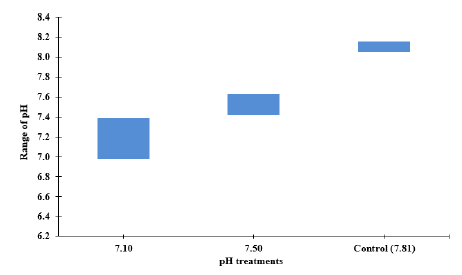The effect of acidified seawater on shell characteristics of blood cockle, Tegillarca granosa
DOI:
https://doi.org/10.17762/sfs.v7i2.127Keywords:
Blood cockle, Climate change, Straits of Malacca, Shell structureAbstract
Our ocean currently has been recorded to absorb about 25% of anthropogenic CO2 on an annual basis. This has estimated the global average sea surface pH to decrease from 8.2 to 8.1 units since the pre-industrial revolution and to further drop between 0.1 to 0.3 units by the end of the 21st century. This possesses a potential impact on wide range of marine organisms' especially marine calcifiers where the CO32- is a fundamental mineral for shell and skeleton formation. In a 7-day experiment, this study investigated the effect of different pH treatments, which were pH 7.10, pH 7.50 and control pH (pH 7.81) on shell properties of the blood cockle, Tegillarca granosa. The shell weight and shell density of T. granosa was significantly reduced at pH 7.10. The smaller mean ratio for weight and density at pH 7.10 indicated there was a large difference between the initial and final value for weight and density. Furthermore, the scanning electron micrograph revealed the rough outer shell surface (periostracum) of T. granosa under decreased pH treatment (pH 7.10). However, the ocean acidification level of pH 7.50 which predicted to occur by the year 2300 showed no significant decrease in shell weight and shell density of T. granosa compared to the control pH treatment (pH 7.81).










